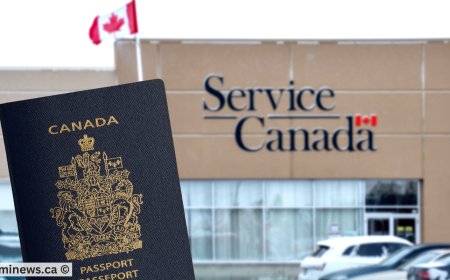Banking, insurance and other financial clerks Migration to Canada: A Detailed Guide on Salaries, Professional Responsibilities, and Preferred Locations
Welcome to the pathway to Canada immigration for skilled professionals and trade workers. This guide is specifically tailored for Banking, insurance and other financial clerks looking to work and settle in Canada, offering a deep dive into the essential aspects of immigration and employment in this field.
Introduction
Canada is known for its strong and stable banking and financial industry, offering excellent career opportunities for individuals looking to start a career in this field. In this article, we will be focusing on the career and immigration prospects in Canada for Banking, insurance, and other financial clerks, whose National Occupation Classification code (NOC Code) is NOC 1434. We will cover details such as the job profile description, main job duties, education and license requirements, skills required, median age and retirements, salary details, and possible visa options for individuals looking to pursue a career in this field in Canada.
What is the Profile Description of a Banking, insurance and other financial clerks as per the Canadian National Occupation Classification (NOC) Standards?
Banking, insurance, and other financial clerks are responsible for gathering, organizing, and managing financial information within banking, insurance, and other financial institutions. These professionals can be found working in banks, credit companies, insurance companies, investment firms, and other financial establishments in both the private and public sectors. Their duties include processing transactions, maintaining records, and assisting customers with financial inquiries.
What are the Main Job Duties of a Banking, insurance and other financial clerks in Canada?
- Compile and maintain records of deposits, withdrawals, loan and mortgage payments, insurance transactions, and financial securities
- Process various financial transactions including loan applications, insurance enrolments, claims, and premium payments
- Verify and balance transactions, calculate payments, and notify customers of any discrepancies
- Provide information on banking products, insurance policies, and financial services to customers
- Compile and maintain real estate, securities, and other financial listings, and answer inquiries and correspondence related to these transactions
What are the Education, Certifications, and Licensing Requirements to Work as Banking, insurance and other financial clerks in Canada?
In order to work as a Banking, Insurance, or other Financial Clerk, candidates must have completed their secondary education. Additionally, a diploma from a business college may also be necessary. On-the-job training as well as short-term training courses or programs tailored to the specific financial institution are typically required for this role.
What Essential Skills are Required for Banking, insurance and other financial clerks to succeed in Canada?
To be successful in the profession of banking, insurance and other financial clerks, individuals should possess essential skills such as attention to detail, strong numerical ability, excellent organizational and time management skills, proficiency in financial software and systems, clear communication skills, and the ability to work well under pressure. These professionals are responsible for preparing and maintaining various financial data and records, processing transactions, calculating insurance premiums, pension benefits and annuity payments, compiling insurance information, processing loan and mortgage applications, verifying and balancing transactions, and selling financial products such as drafts, money orders and foreign currency. They must also be adept at collecting premium payments, administering policy changes, and notifying customers about any account discrepancies. Overall, a successful career in this field requires a combination of technical knowledge, interpersonal skills, and a commitment to accuracy and compliance.
What is the Median Age and Retirement Age for Banking, insurance and other financial clerks in Canada?
Skilled professionals working as Banking, insurance, and other financial clerks have a median age of 41.0 years and typically retire at the age of 63.0. This indicates that these individuals tend to have a relatively long career in this field, likely due to the specialized skills and knowledge required for their roles. The average retirement age of 63.0 suggests that many of these professionals choose to continue working in the industry for a significant portion of their adult lives before transitioning into retirement. This data highlights the importance of experience and expertise in the financial sector and the commitment of these individuals to their careers.
How many job openings exist for Other Banking, insurance and other financial clerks in Canada, and what's their provincial distribution?
Currently, there are a total of 25 job openings for the position of Banking, insurance and other financial clerks in Canada. Among the provinces, Quebec has the highest number of job openings with 13 positions available. British Columbia follows with 5 job openings, while New Brunswick has 3, Saskatchewan has 2, and Newfoundland and Labrador and Nova Scotia each have 1 job opening. Quebec stands out as the province with the maximum job openings, while Newfoundland and Labrador and Nova Scotia have the minimum number of job opportunities in this field. Candidates looking for opportunities in the banking, insurance, and financial sector should consider applying for positions in these provinces to explore career prospects.
What is the hourly wage or salary of Banking, insurance and other financial clerks in different Provinces of Canada?
In Canada, Banking, insurance, and other financial clerks can expect varying wages depending on the province they work in. In British Columbia, the wage for this profession ranges from $15.20 at the low end to $32.82 at the high end, with a median wage of $23.08. Moving to Alberta, wages are slightly higher with a low of $17.86, a high of $33.00, and a median of $27.02. Saskatchewan offers wages ranging from $16.00 to $30.22, with a median of $23.50. In Manitoba, the wages are lower with a range of $13.50 to $28.00 and a median of $19.62. Ontario offers wages from $15.38 to $29.75, with a median of $20.51. Quebec provides wages ranging from $16.00 to $28.72, with a median of $23.00. New Brunswick offers wages from $14.42 to $30.00, with a median of $23.00. Nova Scotia has lower wages with a range of $14.25 to $23.08 and a median of $19.49. Finally, Prince Edward Island provides wages from $13.00 to $24.00, with a median of $17.95. Overall, Alberta offers the highest median wage for Banking, insurance, and other financial clerks, while Prince Edward Island offers the lowest.
What are the various visa options available for Banking, insurance and other financial clerks migrating to Canada?
Banking, insurance, and other financial clerks have various visa options to move to Canada. They can apply under the Express Entry visa category, which is a point-based system that considers factors such as age, education, work experience, and language proficiency. They can also explore Provincial Nominee Programs, where provinces nominate individuals based on their skills and experience. Employer sponsored work visas are another option, where a Canadian employer can sponsor a Banking, insurance, and other financial clerks for a work visa. Additionally, there may be other visa options currently open for this profile. To know more about these visa options and discuss your eligibility in detail, book an appointment with our professionals today.
Have Questions or Need Assistance?
If you have any queries or require assistance with your immigration plans, we're here to help. Our experienced immigration consultants are ready to provide personalized guidance tailored to your specific needs.
Don't hesitate to reach out and schedule an appointment today. Whether you're seeking clarification on immigration processes, exploring visa options, or need support with documentation, we're dedicated to assisting you every step of the way.
Book an appointment with our team to discuss your immigration goals and receive expert guidance for your journey to Canada.
What's Your Reaction?
 Like
0
Like
0
 Dislike
0
Dislike
0
 Love
0
Love
0
 Funny
0
Funny
0
 Angry
0
Angry
0
 Sad
0
Sad
0
 Wow
0
Wow
0









































































